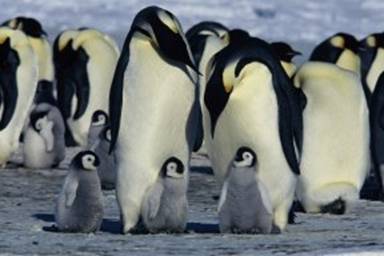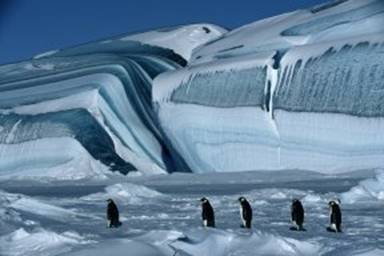16 August 2007
Penguins live on land, on ice, and in the oceans of the southern hemisphere, but global climate warming is shrinking their habitats (see "Shrinking Glaciers"). Oil slicks and other types of pollution are making them sick. More and more often, fishermen catch penguins in their nets by mistake. Over-fishing is making it harder for the animals to find fish to eat.
There is a scene in the movie March of the Penguins in which a group of mother penguins leaves their chicks alone for the first time. The moms will be gone for days. As they waddle away, some of the fuzzy newborns hop after them, screeching and flapping their little wings. Driven by their need for food, the mothers do not even look back.

"For some, this is not acceptable," says narrator Morgan Freeman, describing the chicks' reactions. "But it is nonnegotiable."
In another scene, a penguin mother stands over her dead chick and wails at the sky. "The loss is unbearable," Freeman explains.
Penguins are especially sensitive to changes in the environment because they travel long distances during their lives, but cannot fly. Environmental damage along any part of their routes can have harmful effects.
The Emperor penguins featured in March of the Penguins, for instance, walk and slide on their tummies over ice for 70 miles each year to meet at the same breeding grounds. Similarly, Magellanic penguins, which live in South America, sometimes travel more than 2,000 round-trip miles between Argentina and Brazil.
Penguins gather in huge groups when they breed, which makes it easy for scientists to see if populations are declining.

http://www.sciencenewsforkids.org/articles/20051221/Feature1.asp
Hadir Moftah